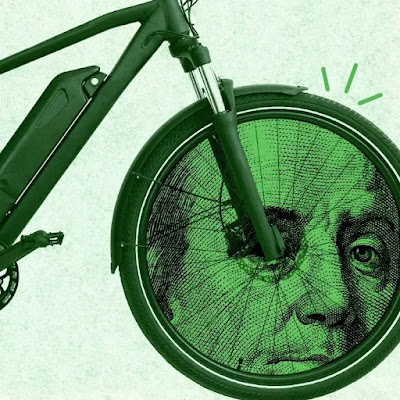You know the world is not the one in which you grew up when beliefs that might’ve been dismissed as conspiracy theories only a few years ago actually seem like reasonable explanations of what’s going on.
To wit: I can’t help but to think that Trump’s tariffs are intended, at least in part, to induce a worldwide economic depression so that he, Elon Musk and their cohorts can buy (through proxies in the case of Trump and other elected officials) stocks, real estate and other commodities at a fraction of their previous costs. Some very wealthy people did exactly that in response to the market crashes of 1929, 1987 and 2008.
Also, Trump’s claim that he’s imposing tariffs to bring manufacturing back to the United States is, at best, a partial truth. For one thing, it will take years, or even decades, to re-shore the fabrication of goods. And, when (or if) industry “returns,” it won’t be in shuttered Detroit auto plants or Pittsburgh steel mills—if indeed they’re still standing. Instead, new facilities—whether in those industries or others—will open up in the so-called “right to work” states, where unions are weak or nonexistent. So, the jobs, which will be fewer In number because of automation, won’t offer the standard of living, health and other benefits or protections (in case, say, a worker is disabled because is working conditions) that workers enjoyed until about the 1970s.
In other words, the tariffs that are supposed to “Make America Great Again” will only make the wealthy wealthier and fewer in number but make everyone else poorer—and many of them more fearful and therefore willing to submit to onerous demands.
Oh, and nobody involved in the US bicycle industry thinks any good will come of those tariffs. The vast majority of bikes, e-bikes and anything related to them come from China and other countries that have been slapped with the largest tariffs. Of the 10 million or so bikes sold annually in the US, fewer than 500,000 (five percent) are even assembled in the US; virtually none are made entirely in the US.
I recall that about thirty years ago, one of the mountain bike magazines tried to build an all-American bike. It was, of course, wildly expensive, as most of the parts were after-market items made by small companies (or even in someone’s garage). Even with a no-limit budget, an all-American mountain bike could not be built because, as I recall, no tires or inner tubes were (or are) made here. I imagine that at least some makers of the parts that went on that bike are no longer in business or were bought by bigger companies that are making the parts in—you guessed it—China or one of the other countries Trump is bullying.
On top of the situation I’ve described, many shops and distributors are sitting in inventory they bought after the COVID boom cleared out shelves and warehouses. Many consumers who wanted to buy during the pandemic, but couldn’t, waited. But when inventory finally arrived, they were no longer interested. So, in a cruel irony, after shops closed a few months into the pandemic because they couldn’t get inventory, others are now closing because they can’t get rid of it—or had to sell for less than what they paid.
The tariffs probably won’t affect the prices of what dealers already have. But it will most likely deter some from bringing in new bikes, helmets and the like, as consumers will be less interested in buying.
So..in keeping with the original premise of this post: I don’t think I’m being a conspiracy theorist when I say, given his anti-bike rhetoric, Donald Trump had the bike industry in mind when he imposed tariffs—which he called “the most beautiful word in the dictionary “—that could potentially double the prices of bicycles, e-bikes and anything related to them. And he probably believes that by punishing cyclists, he’s rewarding the fossil fuel-related industries.



